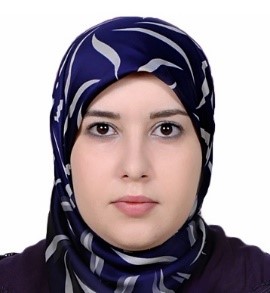2024 International Conference on Information Technology, Electrical and Computer Science (ITECS2024)
Paper Template Submission Form

 Dr. Alexander Molokanov, School of Energy Science and Engineering, Harbin Institute of Technology, China
Dr. Alexander Molokanov, School of Energy Science and Engineering, Harbin Institute of Technology, China
Biography:
Dr. Alexander Molokanov joined the Harbin Institute of Technology, China, in September 2023 as an Associate Researcher. Prior to this, he spent 12 years in various research roles, including Junior Researcher, Researcher, and Senior Researcher at the Central Institute of Aviation Motors in Moscow, Russia. He also worked part-time as a Junior Researcher at the Federal Research Center of Problems of Chemical Physics and Medicinal Chemistry of the Russian Academy of Sciences in Chernogolovka, Moscow region, and as a Senior Lecturer at the Moscow Power Engineering Institute in Moscow, Russia.
Dr. Molokanov obtained his PhD in Chemical Technology of Fuels and High-Energy Substances from the Gubkin Russian State University of Oil and Gas. Throughout his career, he has been involved in more than six major research projects. Notably, he participated in the development of a Computer-Aided Engineering (CAE) system for modeling processes in fuel systems of aircraft engines. His research interests include modeling oxidation, combustion, and thermo-destruction processes.
Dr. Molokanov is a member of the Russian Engineering Academy and serves on state certification commissions at the Moscow Power Engineering Institute (MPEI), the Moscow Aviation Institute (MAI), and the Gubkin Russian State University of Oil and Gas. His extensive research and academic contributions have significantly advanced the field of energy science and engineering.

 Dr. Hayat El Baamrani, Ibn Zohr University, Morocco
Dr. Hayat El Baamrani, Ibn Zohr University, Morocco
Biography:
Hayat El Baamrani received her PhD in Thermal and Energetics in 2023 and her M.Sc. in Energy Efficiency and Building Control at Ibn Zohr University in Agadir, Morocco. His research activities focus on the numerical and experimental study of liquid film evaporation, phase change phenomena, heat and mass transfer, and energy efficiency in buildings. In addition to her research work, she has been involved in a variety of teaching activities as a part-time lecturer at Ibn Zohr University.

 Prof. Pavel Loskot, ZJU-UIUC Institute, China
Prof. Pavel Loskot, ZJU-UIUC Institute, China
Biography:
Pavel Loskot joined the ZJU-UIUC Institute, Haining, China, in January 2021 as Associate Professor after 14 years being the Senior Lecturer at Swansea University in the UK. He obtained his PhD degree in Wireless Communications from the University of Alberta in Canada, and the MSc and BSc degrees in Radioelectronics and Biomedical Electronics, respectively, from the Czech Technical University of Prague in the Czech Republic. In the past 25 years, he was involved in numerous collaborative research and development projects, and also held a number of consultancy contracts with industry. Pavel Loskot is a Senior Member of the IEEE, a Fellow of the Higher Education Academy in the UK, and the Recognized Research Supervisor of the UK Council for Graduate Education. His current research interests focus on mathematical and probabilistic modeling, statistical signal processing and classical machine learning for multi-sensor data in biomedicine, computational molecular biology, and wireless communications.

 Dr. Neil A. Gordon, University of Hull, The United Kingdom
Dr. Neil A. Gordon, University of Hull, The United Kingdom
Biography:
Neil Gordon is a reader in Computer Science. He has research interests at the interface of mathematics with computer science, particularly in the areas of finite geometry and its applications and in formal approaches. He is also an advocate for the effective development and use of technology for teaching, especially in higher education, and has worked on a number of projects with the AdvanceHE. After a joint degree in Mathematics and Computer Science, he went on to complete a PhD in Applied Mathematics (Finite Geometry and Computer Algebra, with Applications). This was followed by work as a Research Assistant, initially on geometry and group theory, and later on solving differential equations and their applications in mathematical physics. He worked for some time as an Educational Technology Advisor, exploring and supporting the use of computer technology in teaching mathematics. In 2000, he began working as a lecturer in Computer Science.
